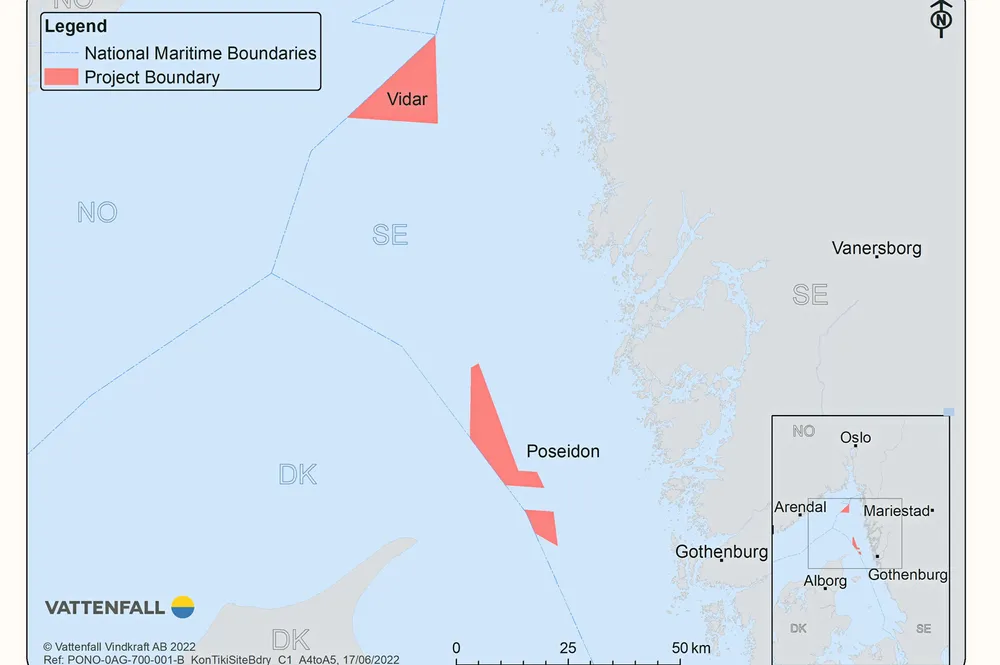'Major opportunities for Norwegian suppliers' as Sweden approves first floating wind project off West Coast
While rejecting projects off its southern and eastern coast, Swedish government did approve Vattenfall’s 1.4GW Poseidon array off its West Coast

Sector group Norwegian Offshore Wind (NOW) regretted Sweden’s cancellation earlier this week of all wind projects off the country’s southern and central Baltic Sea coasts, but said it sees “major opportunities for Norwegian suppliers” as Sweden did approve a gigascale floating wind project off its West Coast.
Sweden seems to regard the Kattegat as less problematic waters due to its location near the sea border with Denmark and Norway – a not near the Russian exclave of Kaliningrad, from where it fears possible missile attacks.
The green light of the Vattenfall project “marks a milestone, with Poseidon, the first floating project in Sweden, being approved,” Stein Erik Skilhagen, head of NOW’s working group for Sweden, said on LinkedIn.
“There are also several other projects on the [Swedish] West Coast based on floating wind turbines that could be close to approval, such as Vidar (1.4GW) and Mareld (2.5GW).
“Together, these projects have a total capacity of 5.3GW, with the first expected to begin producing electricity as early as 2032. This represents a major opportunity for Norwegian suppliers, and Norwegian ports could also play an important role here.”
A final investment decision for Poseidon is expected in 2028, with installation estimated to start in 2031, NOW said. Next to Vattenfall, Zephyr through Kontiki Vind is co-developing the array.
Kriegers Flak was a bottom-fixed project, which likely would make it cheaper to build than the floating project Poseidon.
"We’ve just got the approval and need to analyse it. Meanwhile, the work with Poseidon continues."
(Copyright)